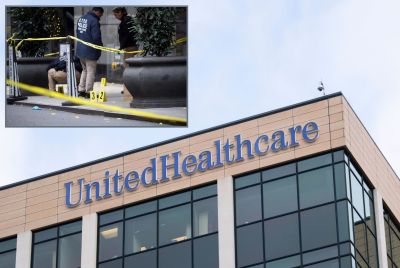Opel Trust says no need to reopen Opel sale
The German trust set up to oversee Opel said it saw no reason to reopen the carmaker's sale despite EU concerns that Germany's promises of state aid had skewed the bidding process.
Seeking to deflate a row over 4.5 billion euros ($6.7 billion) in state aid that Germany promised to Opel should Canadian auto parts firm Magna (MGa.TO) get the nod, the Opel Trust said on Monday that business logic, not political factors, had dictated the choice of a buyer.
We expect that the process will not need to be restarted, a Trust spokesman said. It is now the federal government's task to clear up misunderstandings with the EU.
European Competition Commissioner Neelie Kroes wrote to Germany last week expressing concern that its promises of aid had slanted the bidding process in favor of Magna.
She said former Opel parent General Motors Co GM.UL and the Trust should obtain assurances from Germany that no strings were attached to the Opel sale and should be allowed to reconsider their choice of Magna and its Russian partner Sberbank (SBER03.MM).
Germany has now written to GM and the Opel Trust, giving them the assurance we asked for, Commission spokesman Jonathan Todd said earlier in Brussels.
Germany's Economy Ministry said it had forwarded Kroes' letter to GM and to the Trust, which took a controlling stake in Opel to keep the European carmaker from being swept into GM's brief dip into bankruptcy.
We do not expect this to lead to fundamental problems, a ministry spokesman said, adding that only GM could say whether it still wanted to go ahead with the sale to Magna.
In comments to the Financial Times newspaper on Monday, GM Chief Executive Fritz Henderson said he was reasonably confident the deal with Magna and Sberbank would be signed this week.
Henderson told the paper keeping Opel was one of GM's fallback plans, if necessary, but that there were no other potential buyers lined up, should the deal collapse.
We've had a number of exhaustive discussions with our board on the deal, the rationale for it, and the need to support the Magna transaction, he told the paper.
If facts fundamentally change, we would go back and consult with our board. But right now, we're spending all of our time trying to get the Magna deal done, he added.
A Magna spokeswoman said the company believed the proposal put forward by the consortium provided Opel with the best opportunity for long-term viability.
We believe it was also our long-time relationship with General Motors, as well as our openness in listening to and working with the various parties involved that helped secure the bid, Magna spokeswoman Tracy Fuerst said.
TENTERHOOKS
The back-and-forth between Germany and the EU has delayed a formal signing of the Opel sale contract, leaving its 50,000 staff on tenterhooks.
The Opel Trust approved a sale to Magna but only when a government-appointed trustee with reservations about the deal abstained.
The trustee, Dirk Pfeil, a member of the pro-business Free Democrats, renewed his objections on Monday, telling Reuters he would still rather see Opel stay with GM.
If GM reorganized Opel with German government help, that would be the best solution for everyone involved, he said. That would also be the cheapest option for German taxpayers.
Brussels-listed holding company RHJ International (RHJI.BR), which had bid for Opel, said it was no longer interested, having agreed to buy UK wealth management unit Kleinwort Benson from Commerzbank (CBKG.DE) last week.
Italian carmaker Fiat (FIA.MI) and China's Beijing Automotive Industry Holding Corp (BAIC), which had also been interested in Opel, declined comment.
The office of British Industry Secretary Peter Mandelson said going ahead with the sale of Opel -- including British unit Vauxhall -- to Magna was contingent on satisfying the EU.
We have advised the German government and Magna from the outset that the Commission would have to give clearance and that is why there had to be no real or apparent shortcomings in the process, a spokesperson said. There is no alternative to following the rules. We hope this will not be delayed.
Meanwhile, opposition to the Magna proposals in Spain, which hosts a major Opel plant, continued to dog the deal. Spanish unions threatened on Monday to strike in protest at Magna's latest plans for the plant in Zaragoza and said they would meet on Tuesday to decide a time frame for action.
A strike is possible, said Jose Juan Arceiz, head of the workers' committee at the Opel plant. Magna's latest proposals are still insufficient, and although there has been some progress (on the industrial plan) for the long term, all of the unions consider the short term offer to be insufficient.
Magna has proposed a bigger production cut for the Zaragoza Opel plant in northern Spain in the first years until 2013 when production will pick up again.
(Additional reporting by Philip Blenkinsop in Brussels, Rene Wagner in Berlin, Robert Hetz in Madrid and Fang Yan in Shanghai, John McCrank in Toronto and Simon Jessop in London; Writing by Michael Shields and Noah Barkin; Editing by David Holmes, Matthew Lewis and Carol Bishopric)
($1 = 0.6719 euros)





















